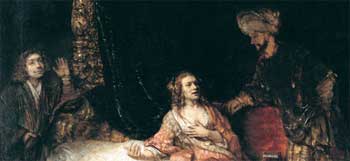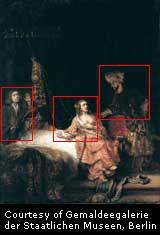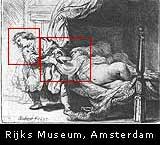
His Father's Voice
Finding himself alone with Potiphar's wife, about to fall into the alluring clutches of sin, he withstands temptation and resolutely declares: 'How then could I do this most wicked thing and sin before God?'
How was Joseph able to transcend his urges and forge this moral resoluteness? The Rabbis portray Joseph as acting not only as a moral agent, but also with an appreciation of his potential role in the destiny of the Children of Israel. About to succumb, Joseph was halted in his tracks by the image of Jacob his father, mentor, his conscience, and alter ego. He saw his father's face and heard his voice:
At that moment, he beheld his father's countenance through the window: 'Joseph, your brothers' names will be inscribed on the stones of the Ephod. It is your choice: Will you be inscribed among them, or will your name be erased and you remembered as a companion of harlots?' (Babylonian Talmud, Sotah 36b)
Though isolated in Egypt, Joseph was not alone. He was part of a great chain, which began with his forefathers and was to continue with his descendants. His connection with his father's heritage served as his moral anchor which neither temptation nor loneliness could destroy. His actions at that moment would not only reflect his familial values, they would build Joseph's bridge to the future and determine his place in Jewish history. The impact of Joseph's moral fortitude would place him honorably amidst the great tribes of Israel, engraved forever on the priestly mantle of holiness, the coat of arms of the Children of Israel.

